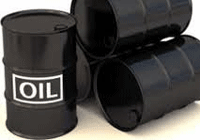
Oil market 'breaks cycle of tight supplies'
London, April 12, 2012
The oil market has broken a two-year cycle of tightening supply conditions, the International Energy Agency said on Thursday, as demand growth weakens and top exporter Saudi Arabia increases output.
The agency, which advises industrialised nations on their energy policies, said increased supply and slowing demand growth might already point to a significant rise in global oil stocks.
Stubbornly high oil prices could be expected to ease when markets woke up to the shift in trend, it added.
Oil prices rose to highs not seen since 2008 of $128.40 a barrel on March 1, mainly because of worries about the impact of sanctions on Iran's oil exports. Oil stood around $120 on Thursday. The IEA said prices could fall further.
"Easing first quarter 2012 fundamentals have seen prices recently lose most of the $5 per barrel they gained in March.
The muted impact so far is partly because much of this extra supply has been stockpiled on land or at sea," said the IEA.
In its monthly oil report, also released on Thursday, the Organisation of Petroleum Exporting Countries (Opec) said it was seeing signs that economic activity was stabilising.
Opec and the IEA agreed on the outlook for oil demand growth this year, leaving their forecasts unchanged at between 800,000-860,000 barrels per day - broadly unchanged on last year and less than a third of the growth seen in 2010.
Opec, which represents the interests of countries pumping more than a third of the world's oil, said it believed a slowdown in economic activity had started to ease.
"The US is at present experiencing better-than-expected momentum and, along with the recovery in Japan and higher exports from Germany, this should provide some support for the global economic recovery," Opec said.
"US oil demand remains a key uncertainty to the existing demand assessment. The upcoming driving season might be affected by high retail gasoline prices and the pace of the economic recovery," it said.
Pump prices have risen steadily this year. Euro and sterling-denominated Brent crude oil hit record highs in March.
In the United States, average gasoline prices of nearly $4 a gallon have become an election issue. "We cannot discount the possibility that prices will remain high so long as geopolitical uncertainties remain," the IEA said.
The IEA estimates sanctions against Iran are already hurting output in OPEC's second biggest producer. The amount of crude it pumped fell in March by a further 50,000 bpd to 3.3 million bpd.
A wider embargo in the second half of the year could put production about 250,000 bpd below levels at the end of 2011.
Opec's numbers differed. It said Iran reported a steady output in March at 3.76 million bpd and a rise so far in 2012.
A recovery in Libya's oil output contributed to a rise in Opec's overall production to 31.31 million bpd in March, according to Reuters estimates. The IEA judged Opec output was near a three-and-a-half year high of 31.43 million barrels per day in March, up 135,000 bpd from the previous month.
Saudi Arabia's oil minister said on Thursday the kingdom, the world's biggest exporter, would pump more if needed. - Reuters







